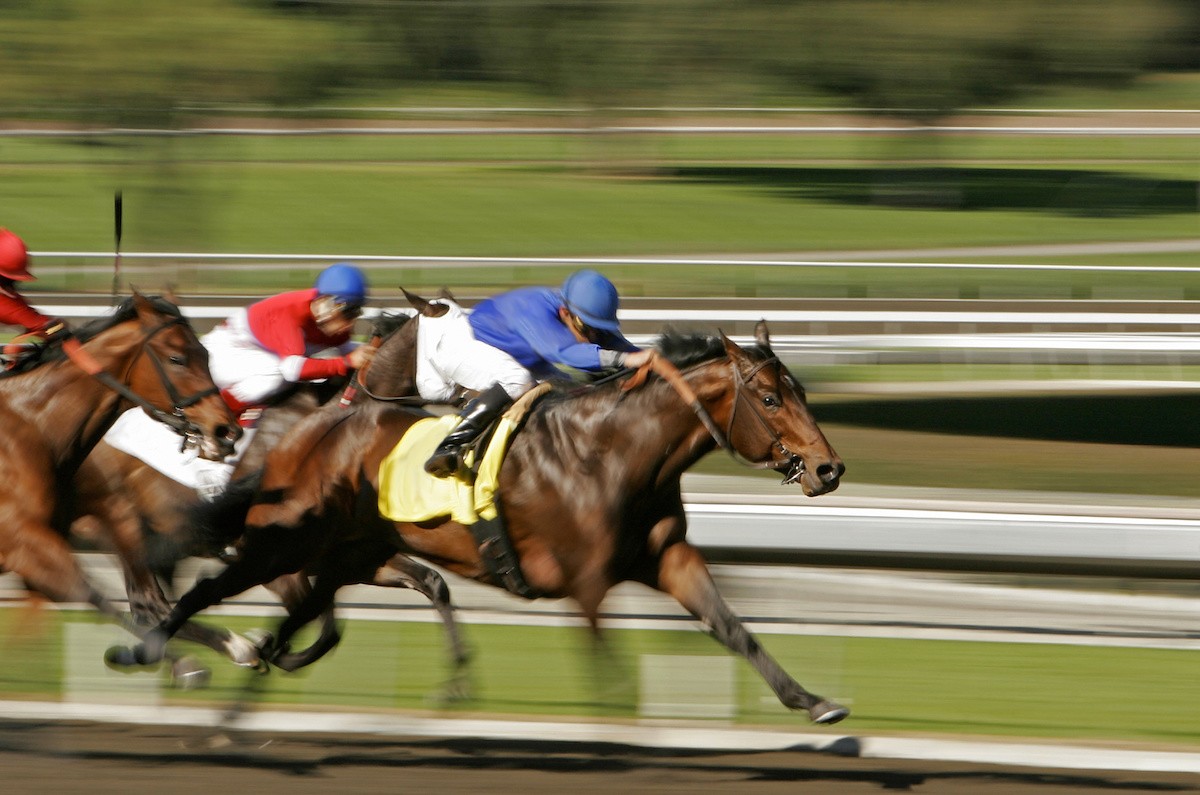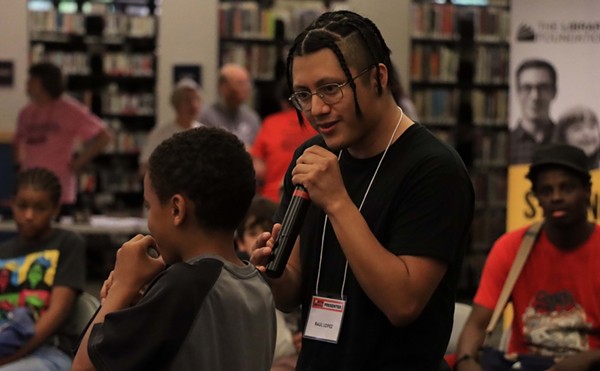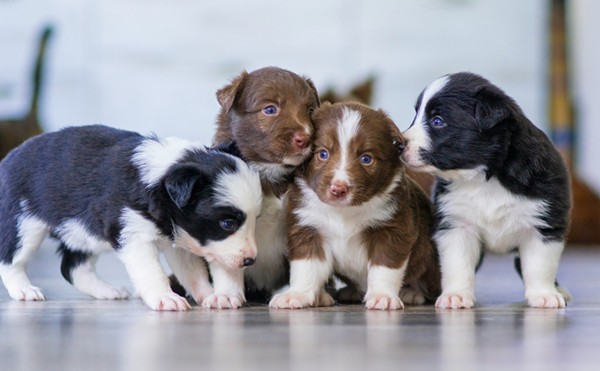I’ve never been to the Derby. I went to the track once a decade ago, but only as part of an elaborate, extended mating ritual. It served its purpose: I eventually married and sired offspring with my date. But I don’t think I’ll ever go again.
A couple of years before my successful bid to find a breeding partner, a filly named Eight Belles was euthanized just after finishing second in the Derby. Generations of Mendelian tinkering had made her leg bones so thin that they snapped an eighth of a mile from the finish line. She couldn’t be moved from where she fell. Horse ambulances and horse trailers pulled up so horse doctors could administer horse poison. No longer visible to the barrels of higher primates stumbling to ticket windows and limousines, the great black beast heaved, sighed and finally expired right there on the track.
Eight Belles was mourned more bitterly and more extravagantly than most humans. Her trainer said in a documentary that he believed “the good Lord has a plan for all things,” but he couldn’t understand this one, and that the filly’s death left him with a “hole in his heart.” An Oaks Day race is named after her. There is a sleek Gallopalooza statue of her in her idealized form, mercury mane in a headwind, ebony legs perfectly intact. She is conspicuously buried at the Kentucky Derby Museum.
We are approaching 14 Derbys from the death of Eight Belles, and the horse racing industry continues without apparent revision or shame. Hundreds of thoroughbreds still suffer injuries on tracks every year. Most of them have to be killed right then and there because their legs are like toothpicks propping up a deluxe Christmas ham. Once those legs break, they’ll get broken again and again every time they are used. The vast majority of those horses don’t end up in museums, and a number of those who survive their racing days end up as food; thousands per year are sold for slaughter.
On the whole, though, racehorses have it far better than most domesticated creatures. Millions of unwanted baby chickens are fed alive into meat grinders just after birth. Factory-farmed birds who manage to make it to adulthood are too grotesquely large to move; they can only sit and wait to be mashed into sandwiches. Pigs, who are much smarter than dogs and cats, have their tails, testicles, teeth and other stray parts removed so they can be crammed into closer quarters. Cows frantically search for their babies, bellowing in grief long after calves have been converted into veal.
Sorry to be such a downer. You see why I can’t go to the Derby. This time of year makes me into the quintessential killjoy, a role I relish, loathe and relish loathing. Listen: Eat what you want, I’m not here to judge. I, too, enjoy the occasional fried flesh nugget because I am a product of a culture that has convinced itself it is entitled to take every liberty with every non-human entity on the planet. But some moral bargains must be struck, and I’m just not sure that two minutes of watching beautiful, confused hulks get whipped to run in a circle as fast as they can is worth the price. We can still dress up in pastels and collapse under the weight of our enormous hats and drink cocktails with leaves hanging out of them. We can still dump megatons of munitions into the Ohio River and pretend like warplanes are attacking us. We can still roll in the mud and fight with broken whiskey bottles and drench each other in vomit and copulate in the infield. We can do all this without creating 20,000 new lives each year for us to exploit and discard.
In this pre-civil war era, most readers will recognize the gravity of dehumanizing language. History shows that comparing groups of people to rats or cockroaches is the precursor to some Very Bad Shit. When a former president referred to some immigrants as “animals,” pundits rightly sat up and took notice. “It took an animal,” explained the former press secretary, “to stab a man a hundred times and decapitate him and rip his heart out,” so chill out liberal media, these are real animals we’re talking about. The implication is that once something is less than human, we have license to treat it however we might like: We may kill it for the sake of convenience, we may dismember it just for fun, we may cage it, burn it, stomp on it, eat it, whatever.
It is, therefore, a mortal sin to downgrade the biological status of any human being. But I wonder if it might be worth examining the other side of the equation, too, viz. Can’t we think a little kindlier of all the creeping things that creepeth upon the earth? Horses, for example, can read facial expressions and other emotional cues. They nuzzle and protect their young, and they mourn lost companions. They will not stab you a hundred times, or decapitate you, or rip your heart out, or murder your family with machetes, or bomb your hospitals, or put you in death camps. No animal is capable of such atrocities (with one notable exception). Perhaps we owe them more dignity than making them run for our drunken pleasure until their limbs snap in half.
That Gandhi quote, the one about judging a society by how it treats its animals? It’s bullshit. Gandhi never said it. No one takes it seriously, so I suppose it doesn’t matter. But I suspect there is an as-yet-unknown cost for the millennia of harsh dominion we’ve exercised over the beasts of the sea, air and land, the methodical mutilation of flora and fauna, the bleaching of all the green things, the demolition of entire ecosystems and the top-speed ruining of muscular marvels just for the hell of it. Our species has long bet that we are entitled to an unlimited number of such abuses, and that we would never have to pay for any of them. I bet we’re wrong.
Dan Canon is a civil rights lawyer and law professor. His book “Pleading Out: How Plea Bargaining Creates a Permanent Criminal Class” is available wherever you get your books.






